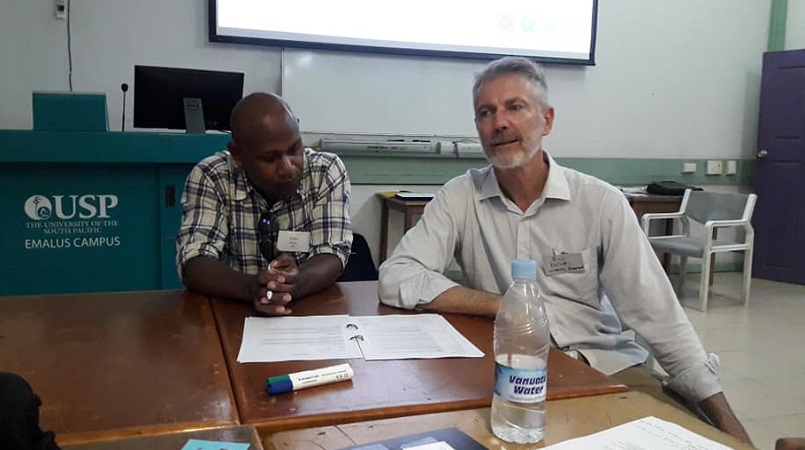
About 30 people are attending a weeklong training on food systems in Port Vila, Vanuatu.
The participants have been drawn from early-career professionals or post-graduate students studying any aspects of Food Systems in the Solomon Islands and Vanuatu.
The course is being delivered by staff from the UK's "Innovative Food Systems Training and Learning" and University of Queensland School of Agriculture and Food Sciences Programmes, in association with local researchers.
While opening the training Tuesday, Director General of Ministry of Agriculture, Livestock, Forestry, Fisheries and Biosecurity, Moses Amos emphasised the Government's intention to promote Vanuatu as an Organic Producing Country.
Vanuatu's Agriculture Sector highly contributes to Food Security and its contribution to GDP fluctuates between 22 and 27%.
The Agriculture Sector in Vanuatu comprises of four key sub-sectors:
1. Subsistence farming- base on stable food crops like taro, yam, cassava, sweet potato, livestock, fishing and forestry activities.
2. Small scale/ semi- subsistence farming
3. Export cash crops including coconut, cocoa, kava, coffee, pepper & vanilla.
4. Commercial Livestock production
Whilst subsistence farming is the foundation of livelihood of 80% if Ni-Vanuatu living in the rural areas, cash crops also plays an important and significant role through their contribution to Vanuatu's export, economy and income.
The overall aim of the training is to help participants gain a better understanding of food system challenges, and identify opportunities for bringing about systemic change to enhance food system outcomes for food security, health, environment, livelihoods and enterprise.
Photo supplied Caption: A facilitator from University of Queensland with participants during the first day of the training.
